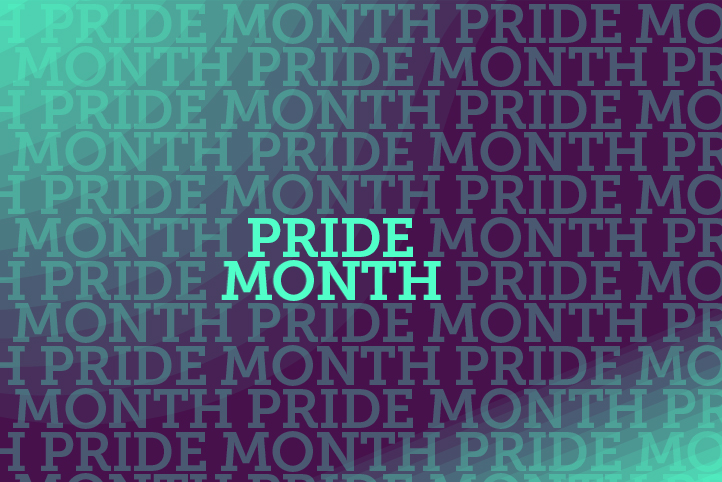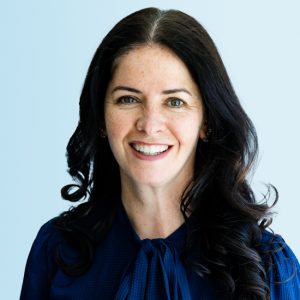By Stefanie McNamara
Earlier this month, Seramount hosted its annual Pride webinar for over 500 attendees. The event served as part inspiration and part practical advice to empower individuals, allies, and employee resource groups working to support the LGBTQ+ community both at their organizations and in the communities in which they serve.
Kicking off the event, Marcelo Vásquez, Senior Director of Diversity Best Practices at Seramount, recognized this time of tremendous uncertainty for the LGBTQ+ community. Progress is being threatened from all sides: There have been nearly 240 anti-LGBTQ+ bills filed by state lawmakers in 2022, most of them targeting trans people. Human Rights Campaign reports that hate crimes targeting trans people were at an all-time high. Vásquez went on to honor the trans people who were targeted and killed as a result of hate crimes in the past two years. “I know Pride is a time to celebrate how far we have come, but I feel that now more than ever, we need to remember that our community is still suffering,” said Vásquez. It was a powerful moment.
He also celebrated the progress that has been made on a global scale, acknowledging the countries that now recognize same-sex marriage as law, including Switzerland, Costa Rica, Taiwan, Ecuador, Austria, and his home country of Chile, and how 275+ companies have signed the Human Rights Campaign’s Business Statement Opposing Anti-LGBTQ State Legislation. These are all important steps, and his call to action was strong: “I invite you to transform these facts in hopes to inspire action because we, as a community, can no longer sit home and wait for things to get better. Being an ally is no longer enough. Together, we must be fierce advocates within our own organizations and within society. We must rise up and speak out.”
This webinar featured three speakers: Patrice M. Palmer, Assistant Dean and OFD Director, Justice, Diversity, Equity and Inclusion Institute, Colorado State University College of Business, and CEO & Principal Consultant, eROOT Consulting™️; Dale Tucker, Senior Director—Global Technology Alliances/Equinix (Co-Leader, PrideConnect); and Becky Kuehn, District Sales Manager, Eli Lilly (Chair of Field Pride, Pride ERG). They spoke about the importance of being your true self, intersectionality, allyship, and more. Here are my takeaways:
Be Your True, Authentic Self
Patrice Palmer of Colorado State University College of Business, a Black, Queer, non-binary, transgender person, believes in the power of being true to yourself. They said: “We must affirm who we are. We (the LGBTQ+ community) are not a monolith, not a trend, fad or new thing, we are a people who have always existed.” Palmer believes that while Pride should be celebrated, the lived experiences of the LGBTQ+ community are romanticized and that those who walked before must be recognized. The history must be understood.
They went on to say, “Yes, laugh and embrace. Celebrate and love. Those not in our communities love our rhythm but don’t stand with us through our blues. So, we have to remember those who became before us.”
When an individual can be themselves authentically, this visibility allows others to follow suit. They too can say, “This is who I am against all odds.” Becky Kuehn of Eli Lilly added, “Our visibility is important, but so is our representation.”
Recognize That We All Intersect
According to Dale Tucker, of Equinix, one of their critical goals is to be a leading employer for the LGBTQ+ community by the end of 2022. PrideConnect, Equinix’s LGBTQ+ Employee Resource Group (or Equinix Employee Connect Network, EECN), was formed in 2019, and this goal helps drive the mission for PrideConnect. They knew that “the power of this ERG would be best harnessed by creating a definitive goal in service to our identifying members and allies, and one that was genuinely supported by our company,” he said. “So, this goal of being a leading employer for the LGBTQ+ community is not just rhetoric, it’s not just checking a box. But instead, it represents broad and deep commitment to ensure that this community at Equinix thrives.”
Tucker also noted that PrideConnect is just one piece of the ERG puzzle. Since its launch three years ago, seven additional ERGs have been born and PrideConnect shares best practices and approaches that “help move the needle for each of the communities reflected.” By forming EECN councils, it allows each group to explore intersectionality and evolve the development of Employee Networks, allowing space for each to grow and thrive organically.
At the very beginning of the program, Palmer said: “The intersections of our identities and those things work together to make the community as vibrant as it is. We are one of the most diverse communities of all cultures in the world. We are the human experience, we are the love and the light of what can be.”
Create Safe Environments
On Eli Lilly’s journey to become a more inclusive workplace, one of the challenges they found was how to identify LGBTQ+ talent as they are “hidden in plain sight,” said Kuehn “And with the sensitive status that LGBTQ+ can be, not everyone is comfortable and confident being out at work.” Lilly embarked on a journey to use data to identify this talent group and how to engage and develop them in a way that is both safe and meaningful. Lilly wanted to give them a way to raise their hand and self-identify. Lilly launched their internal voluntary Self-ID program, which lets all employees share their sexual orientation and gender identity in a safe, protected environment. Lilly’s Human Resources department would then use this protected information to reach out specifically based on an employee’s LGBTQ+ status, in the event that a leadership opportunity presents itself.
During the audience Q&A, Palmer spoke about creating safe environments for those who would like to identify openly in the workplace. They advised that before coming out, “see if it’s safe. Begin having those conversations with those that you trust. Know yourself and what feels right for you. This is who I am, this is how I show up in this space and it creates a culture of it being ‘my norm.’”
Become a Transformative Ally
To truly be a transformative ally, one must recognize their position and power and use it to elevate others. Tucker’s advice is to connect with other ERGs within your organization, as it’s important to expose yourself to people who are different. You might not have time to be an active member of another ERG, but as an ally, you can attend events and ask questions. This will make you a “better individual and a better contributor in your day job,” he said.
At Lilly, they have implemented a reverse mentorship program where members of the LGBTQ+ community can partner with a senior leader outside of their direct work stream, where they are able to share what their lived experience is as an LGBTQ+ person and help the leader foster a more inclusive work environment. Kuehn notes that it’s also important to reach out and invite members of different ERGs to a team call or meeting. She went on to say, “It’s important to have lens of ‘what if I’m interacting with a customer who belongs to this community. Is there a different communication style that I can take to help me be more inclusive?’” It’s how they’ve gotten “naysayers” on board.
Corporations have been a critical component of the progress of LGBTQ+ rights, notes Tucker. Palmer also urges, “use your social capital with purpose. I implore you to support organizations that support communities that are vulnerable. Support ERGs within your organizations who are fighting to be seen and heard.” In order to truly be an ally, we must all use our voices, position, and power to support this community.
Become a Diversity Best Practices member and gain access to member webinars and events, resources, and our DEI experts. Contact us to learn more.


